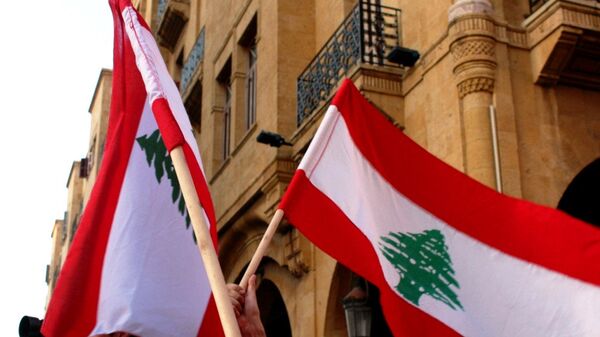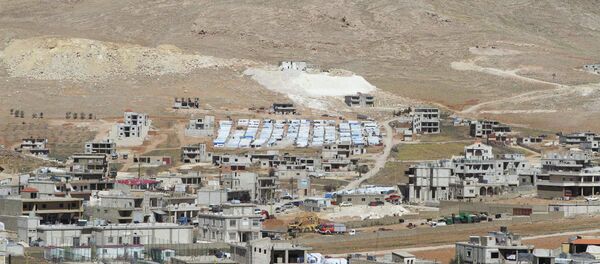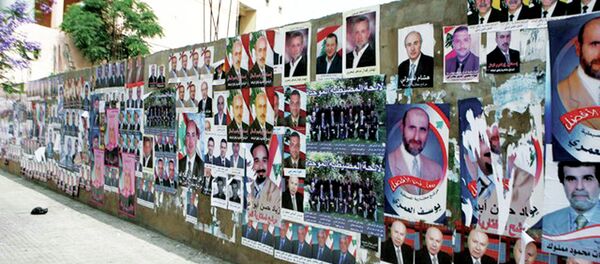The failure to pick a successor to Sleiman, whose six-year tenure came to an end on May 25, has plunged the country into a presidential impasse that has paralyzed Parliament.
I don't understand, why do the Lebanese not have a president? MPs can't agree on one? Why don't they call for an election? #Lebanon
— Zainab (@zainab_h24) April 2, 2015
In the presidential election held in Lebanon in April 2014, no candidate reached a two-thirds majority. Since then, 21 attempts have been made to find a consensus candidate.
Members of parliament led by Michel Aoun's Change and Reform bloc, Hezbollah's bloc and its March 8 allies, continually boycotted the voting rounds, demanding an agreement beforehand with their March 14 rivals over a consensus candidate.
Aoun's Interests First
The protest was led by the Civil Society Dialogue Table, a group of non-governmental organizations.
A number of other protesters, including political figures and members of the Beirut Bar Association, joined the rally held at Riyad al-Solh Square in Downtown Beirut, according to the Daily Star.
In an analysis of the ongoing impasse, Michael Young said:
"Mr Aoun, a man of destructive aspirations, realises that, at 81, this is his last chance to become head of state. For months he has prevented his parliamentary bloc from attending election sessions (parliament chooses the president) to vote for a successor to Michel Sleiman. Mr Aoun's decision has prompted his ally Hizbollah to follow suit, preventing a quorum."




